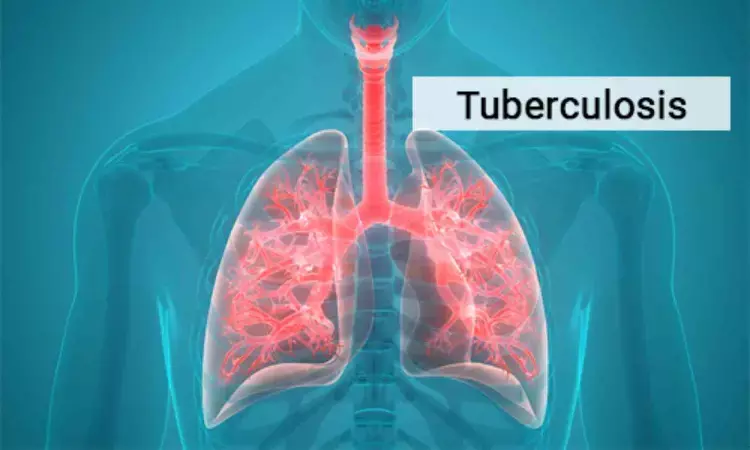- Home
- Medical news & Guidelines
- Anesthesiology
- Cardiology and CTVS
- Critical Care
- Dentistry
- Dermatology
- Diabetes and Endocrinology
- ENT
- Gastroenterology
- Medicine
- Nephrology
- Neurology
- Obstretics-Gynaecology
- Oncology
- Ophthalmology
- Orthopaedics
- Pediatrics-Neonatology
- Psychiatry
- Pulmonology
- Radiology
- Surgery
- Urology
- Laboratory Medicine
- Diet
- Nursing
- Paramedical
- Physiotherapy
- Health news
- Fact Check
- Bone Health Fact Check
- Brain Health Fact Check
- Cancer Related Fact Check
- Child Care Fact Check
- Dental and oral health fact check
- Diabetes and metabolic health fact check
- Diet and Nutrition Fact Check
- Eye and ENT Care Fact Check
- Fitness fact check
- Gut health fact check
- Heart health fact check
- Kidney health fact check
- Medical education fact check
- Men's health fact check
- Respiratory fact check
- Skin and hair care fact check
- Vaccine and Immunization fact check
- Women's health fact check
- AYUSH
- State News
- Andaman and Nicobar Islands
- Andhra Pradesh
- Arunachal Pradesh
- Assam
- Bihar
- Chandigarh
- Chattisgarh
- Dadra and Nagar Haveli
- Daman and Diu
- Delhi
- Goa
- Gujarat
- Haryana
- Himachal Pradesh
- Jammu & Kashmir
- Jharkhand
- Karnataka
- Kerala
- Ladakh
- Lakshadweep
- Madhya Pradesh
- Maharashtra
- Manipur
- Meghalaya
- Mizoram
- Nagaland
- Odisha
- Puducherry
- Punjab
- Rajasthan
- Sikkim
- Tamil Nadu
- Telangana
- Tripura
- Uttar Pradesh
- Uttrakhand
- West Bengal
- Medical Education
- Industry
Lung cancer risk increases after tuberculosis episode: Study

USA: The chance of acquiring lung cancer following a tuberculosis episode is slightly elevated and consistent in occurrence states a study published in the European Respiratory Review.
Globally, tuberculosis is a serious health issue. Chronic respiratory conditions such as tuberculosis are among the long-term health impacts that tuberculosis patients endure after treatment. The link between tuberculosis and lung cancer has drawn a lot of attention.
Studies on the link between an episode of tuberculosis and eventual lung cancer have produced conflicting findings, although it has been hypothesized that inflammation from pulmonary tuberculosis contributes to the development of lung cancer. Therefore, Javier Cabrera-Sanchez, Facultad de Medicina, Universidad Peruana Cayetano Heredia, Lima, Peru, and colleagues investigated the possibility that lung cancer might develop later as a result of tuberculosis.
Their findings showed a link between the development of lung cancer and tuberculosis, especially in the first two years following diagnosis but not exclusively. Additionally, they noted that causality could not be established because some cases of cancer might have been present at the time of the tuberculosis diagnosis.
The researchers performed a meta-analysis of 73 studies for this objective, and out of 6240 records, 44 of which were case-control studies and 29 of which were cohort studies. Studies based on a search of numerous databases, including PubMed, Scopus, Cochrane, and Latin American and Caribbean Health Sciences Literature, were published between January 1, 1980, and September 1, 2021. Sample sizes for cohort studies ranged from 6699 to about 15.2 million, while those for case-control studies ranged from 144 to 91,301.
Three models were created after a random-effects meta-analysis was conducted to pool uncorrected and adjusted estimates of the link between tuberculosis and subsequent lung cancer diagnosis or lung cancer death. Nearly all combined estimates of the risk of lung cancer were adjusted for age and smoking—two risk factors shared by both lung cancer and tuberculosis—to lessen confounding.
Key findings of the study:
Within two years of receiving a tuberculosis diagnosis, the chance of developing lung cancer increases fivefold (pooled HR, 5.01). After year 2, the probability drops to a 44% higher level.
According to cohort studies, the chance of receiving a lung cancer diagnosis following a case of tuberculosis is 51% higher than it is in the general population (pooled hazard ratio [HR], 1.51).
According to case-control studies, the risk is elevated by 74% (pooled odds ratio [OR], 1.74).
Complete stratified analysis shows consistency: hazard ratio and odds ratio between 1.5 and 2.
Prospective studies that account for important confounding variables are required to determine which tuberculosis patients are most at risk, as well as the most efficient means of reducing that risk, added the authors.
The authors concluded that the study findings raise heightened clinical concern during unexpected encounters and support the potential for a subsequent diagnostic work-up, particularly in patients with significant lung cancer risk factors.
REFERENCE
Cabrera-Sanchez J, Cuba V, Vega V, Van der Stuyft P, Otero L. Lung cancer occurrence after an episode of tuberculosis: a systematic review and meta-analysis. Eur Respir Rev. 2022 Jul 27;31(165):220025. doi: 10.1183/16000617.0025-2022. PMID: 35896272.
Dr Kamal Kant Kohli-MBBS, DTCD- a chest specialist with more than 30 years of practice and a flair for writing clinical articles, Dr Kamal Kant Kohli joined Medical Dialogues as a Chief Editor of Medical News. Besides writing articles, as an editor, he proofreads and verifies all the medical content published on Medical Dialogues including those coming from journals, studies,medical conferences,guidelines etc. Email: drkohli@medicaldialogues.in. Contact no. 011-43720751


